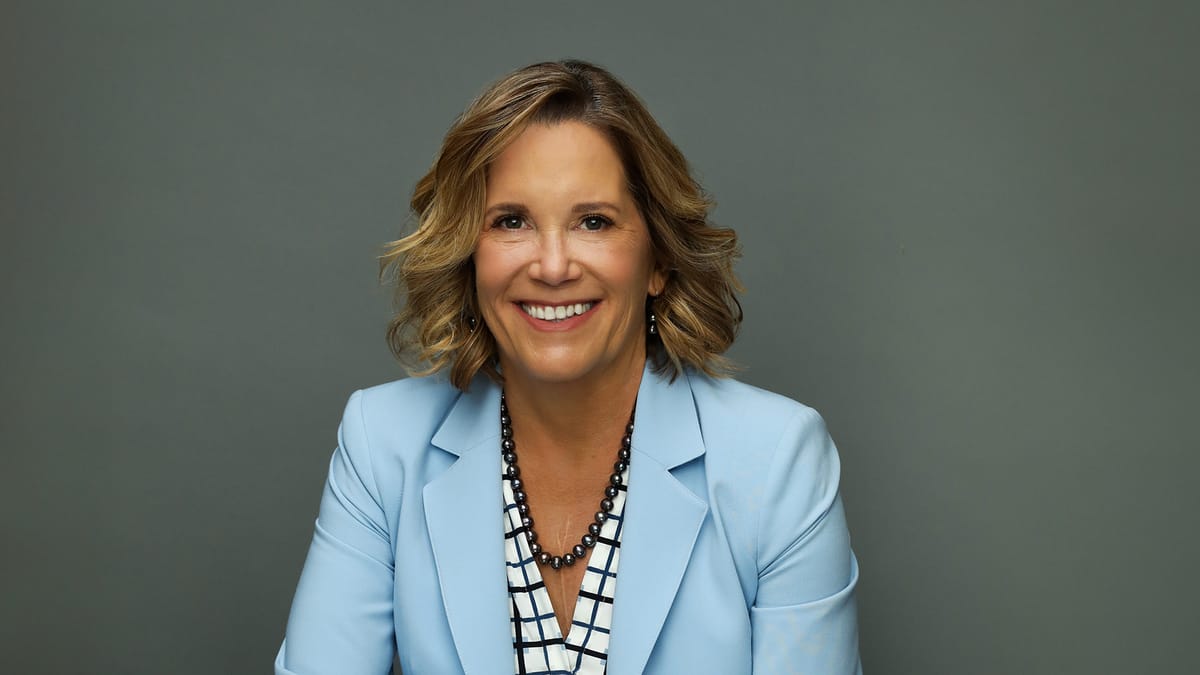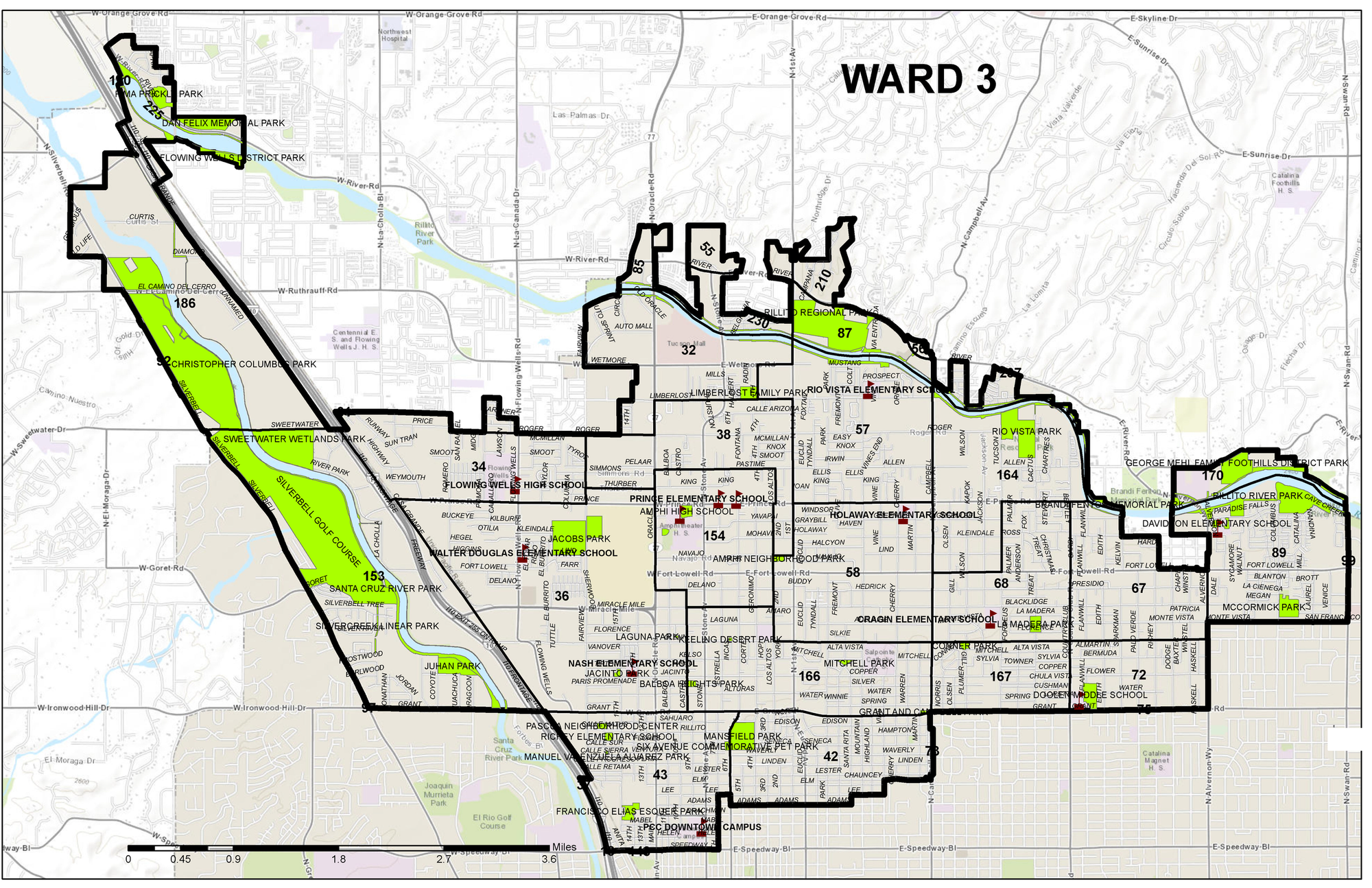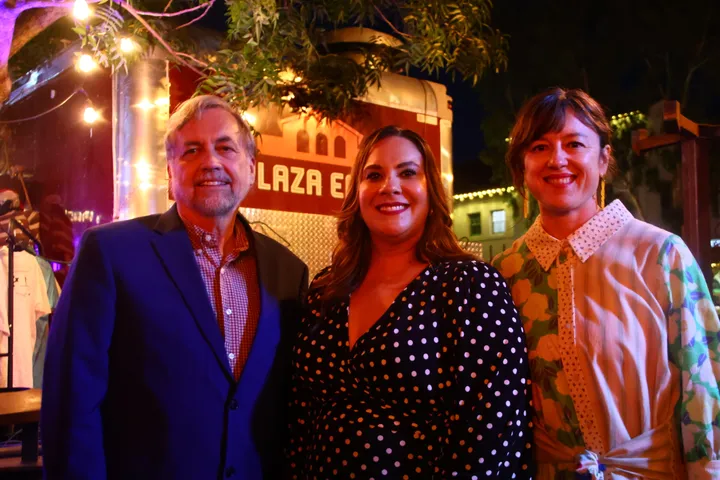Ward 3 candidate Wittenbraker takes aim at city policies
Janet Wittenbraker is running for Tucson’s Ward 3 City Council seat, focusing on homelessness, crime, and changing city spending priorities.

After back-to-back bids for mayor and county supervisor, political newcomer Janet "JL" Wittenbraker is launching a third run — this time for Tucson City Council — driven by frustration with what she calls a dysfunctional local government and a desire to make a meaningful difference.
A senior contracts administrator by day with a master’s degree in legal studies, Wittenbraker challenged Tucson Mayor Regina Romero for her seat in 2023, earning 32% of the vote.
Last year, she ran for the District 5 seat on the Pima County Board of Supervisors, falling in the general election to Democrat Jen Allen. Her second time around, Wittenbraker brought in 43% of the vote.
A Republican, Wittenbraker is hoping that the third time really is a charm and that she’ll be successful in her attempt to unseat current Ward 3 Councilman Kevin Dahl.
“I have never in my entire life had any aspiration to run for office, but the reality is, our local government has a great impact on our everyday lives, but people are blind to that. That is my inspiration for running for office,” Wittenbraker said.
One of her top priorities should she win the seat is to explore new ways to address homelessness, a challenge she views as resistant to simple solutions. She’s critical of Tucson’s current reliance on the Housing First model, which places people into housing before addressing underlying issues.
“Oftentimes people will call for shelter, but we know the Housing First program is actually a failed program,” Wittenbraker said. “It has been around since the Obama era … and it’s overwhelmingly a failed program with only one exception, in San Antonio, Texas.”

What sets San Antonio apart, Wittenbraker said, is its broader approach, including loosening permit rules, encouraging mixed-income housing development and providing support for residents before they become unhoused.
She said San Antonio’s success comes from addressing homelessness through a comprehensive strategy that includes improving housing affordability and tackling substance use.
Instead of concentrating solely on providing shelter, city officials eased permit regulations, promoted the development of housing for various income levels, and provided assistance to residents before they became homeless.
By contrast, she argued, Tucson has enforced barriers to building new housing, especially affordable and starter homes. Rising impact fees, strict building codes and high permitting costs have made it more expensive and complicated to develop new housing.
She specifically criticized mandates requiring solar panels on low-income housing, saying they inadvertently increase costs and slow construction.
Wittenbraker also believes the current system prioritizes low-income housing while neglecting the needs of middle-income and first-time homebuyers. She argues that this can contribute to displacement and gentrification, as families get priced out of their own neighborhoods and must relocate.
She said substance use and mental illness complicate the issue of housing, but local governments can and should enforce existing laws around drug use, theft and panhandling to encourage individuals toward treatment and services.
Wittenbraker also argued for stronger reentry programs for formerly incarcerated individuals.
“The City of Tucson should provide temporary jobs to those individuals to help them reintegrate, rebuild income and access housing,” she said, suggesting that these jobs could be basic roles within the city, like emptying trash or working in parks, and helping them build up to skilled trades such as landscaping, HVAC or plumbing.
Her concerns extend beyond homelessness to crime, public safety and economic development. Wittenbraker said crime affects small businesses, including recent closures of Walgreens stores attributed in part to theft and shoplifting.
“Many of our city policies work against some of our small businesses,” Wittenbraker said, proposing that the city stop treating business licensing as a revenue source and instead focus on creating an environment where local enterprises can thrive, generating sales tax revenue. “If your business can operate safely and effectively, the city shouldn’t be securing a profit from the business license process.”
She also criticized Tucson’s budgeting priorities, arguing that funds are spread too thinly across departments rather than focused on core services like public safety, road maintenance and parks.
Wittenbraker called for the city to allocate the majority of its budget to those three areas, saying that other services, such as housing or early childhood education programs, could be supported through federal funding or community efforts.
She opposed raising taxes as a solution to budget shortfalls, particularly sales tax, which she described as regressive and harmful to low-income residents. Instead, she advocated for making strategic cuts and pausing certain “nice to have” projects.
“I promise you, we will build more bike lanes in the future, but right now, we need to focus on fixing roads and keeping people safe,” she said.
Wittenbraker also criticized recent changes in City Council salaries approved by voters in 2023.
“I have a real hard time with that,” she said, referring to the raise from about $24,000 to over $96,000, which she said came without new expectations around full-time hours or accountability.

When it comes to road repair, Wittenbraker says the city of Tucson needs to take ownership.
“Until roads are made a priority by the city — not through a special tax, but as a central policy — nothing will change,” she said.
She also argued Tucson should reconsider its approach to bike lanes. Rather than placing them on every street, she proposes establishing designated corridors where cyclists have the right of way. She believes a smarter, more strategic approach would improve safety without disrupting vehicular traffic.
Reflecting on her 2023 mayoral campaign, Wittenbraker pointed to low voter turnout as a significant barrier, with only 24% of registered voters participating in that election.
“Until people understand how their city government works and who does what, we’re not going to change anything,” she said.
She also questioned the limited availability of council offices for residents who work 9-to-5 jobs. Despite being relatively new to politics, Wittenbraker said she is willing and determined to learn and adapt.
“Some of my ideas have changed because I listen to people and take them seriously,” she said. “The high-level talking points don’t move people. Conversations do.”
Wittenbraker will take on the Democratic primary winner in the November general election.
Voters will have a chance to talk with Wittenbraker and her fellow Ward 3 candidates, Democrats Kevin Dahl and Sadie Shaw, at a July 8 candidate meet-and-greet, co-hosted by Tucson Spotlight and the Arizona Luminaria. Find details and RSVP here.
Isabela Gamez is a University of Arizona alum and Tucson Spotlight reporter. Contact her at gamezi@arizona.edu.
Tucson Spotlight is a community-based newsroom that provides paid opportunities for students and rising journalists in Southern Arizona. Please support our work with a paid subscription.



